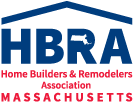 Buying a home for the first time can be a rewarding experience. A home is an investment and place for you and your family to call your own. There are many steps involved in purchasing a home. Before you fall in love with a property or contact a real estate agent, it is important to make sure your finances are in order. To help your home purchase go smoothly, you should know where you stand financially. To help you assess your financial fitness for your home purchase, consider the following:
Buying a home for the first time can be a rewarding experience. A home is an investment and place for you and your family to call your own. There are many steps involved in purchasing a home. Before you fall in love with a property or contact a real estate agent, it is important to make sure your finances are in order. To help your home purchase go smoothly, you should know where you stand financially. To help you assess your financial fitness for your home purchase, consider the following:
Check Your Credit Score. An important first step is checking your credit score. Your score will help you determine the financing options available to you and your score will impact your mortgage terms. Lenders check credit scores to determine if a borrower has a record of on-time payments to gauge the likelihood of repaying the mortgage. The higher your credit score, the more financing options and lower interest rates will be available to you.
Set a Realistic Budget. How much house can I afford is one of the first questions first-time home buyers ask themselves. Experts say that your total monthly home expenses should not exceed more than one-third of your gross monthly income. As you prepare a budget, make sure to include your estimated housing costs and down payment. Your estimated housing costs should not only include your mortgage payment but also other factors such as your estimated annual property taxes, home insurance and loan terms (how long you would like to pay off your mortgage).
Shop Around for a Mortgage Rate. To secure the best financing deal for your new home, make sure to shop around for a home loan. Comparing costs may save you a significant amount of money in the long run. If you need assistance, a mortgage lender can help provide guidance on the various loan options available. There are several types of mortgages available, including FHA, conventional, adjustable rate, and fixed rate. You’ll need to learn more about each mortgage to figure out which option works best for you.
Know Your Down Payment Options. The longstanding first-time home buyer myth is that you need a 20-percent down payment to purchase a home. There are several loan programs and options available to allow buyers to move forward with purchasing a home with a smaller down payment. Determining how much you should put down is a personal decision based on your financial status.
Get pre-qualified or pre-approved for a mortgage. While the terms seem interchangeable, they vary in terms of purchasing a home. If you get pre-qualified for a home, you’ll learn how much money you will be able to borrow based on your financial profile, which includes a credit check. When you pre-qualify, you learn more about your financial readiness and will get an introduction to the mortgage options available to you. To get pre-approved for a mortgage, you provide more details about your financial status to a lender as well as a credit check. After the lender verifies your information, you will receive a letter of the amount and type of mortgage available to you. In a competitive real estate market, a pre-approval letter shows sellers and real estate agents that you are a serious buyer ready to make an offer on a home.
To find a new home or for more home buying advice, contact your local association here.

